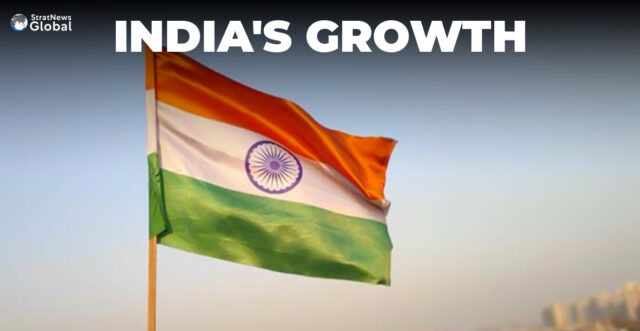The International Monetary Fund (IMF) maintained its growth forecast for India on Friday at 6.5% for FY26 and FY27, stating that this projection aligns with the country’s potential.
The IMF attributed the slower-than-expected growth in the September quarter—recorded at 5.4%—to a sharper deceleration in industrial activity.
The IMF’s forecast for India is slightly lower than the World Bank’s projection of 6.7% growth for the same period.
The World Bank reiterated that India is poised to remain the fastest-growing major economy through FY26 and FY27, citing sustained growth in the services sector and strengthening manufacturing activity supported by government initiatives.
Economy Forecast
The World Bank added that efforts to improve logistics infrastructure and streamline tax reforms are expected to drive this momentum of the Indian economy.
Meanwhile, the National Statistics Office’s (NSO) First Advance Estimates project India’s FY25 growth to decline to a four-year low of 6.4%, lower than the Reserve Bank of India’s forecast of 6.6% for the current fiscal.
Globally, the IMF projected growth in India to remain steady at 3.3% for both 2025 and 2026.
While the global forecast remains largely unchanged from the October 2024 update, upward revisions in the United States offset downgrades in other major economies.
The IMF revised China’s growth forecast for 2025 slightly upward to 4.6%, citing the fiscal package announced in November as a mitigating factor against trade policy uncertainties and property market challenges.
However, it warned of risks arising from intensifying protectionist policies, which could disrupt trade flows, reduce investment, and harm supply chains.
Geopolitical Risks
Geopolitical tensions, including the conflicts in the Middle East and Ukraine, were flagged as potential disruptors of trade routes and drivers of rising food and energy prices.
According to the IMF, these factors could significantly impact commodity-importing nations, exacerbating stagflationary pressures.
On a positive note, the IMF highlighted that global economic activity could benefit if countries renegotiate trade agreements and pursue structural reforms to enhance labour supply, foster competition, and support innovation.
These measures could bolster medium-term growth prospects.
The IMF also underscored the need for economies to manage short-term risks while building buffers.
For countries facing persistent inflation, maintaining a restrictive monetary policy stance until inflation sustainably declines to target levels will be crucial, it said.
(With inputs from IBNS)





